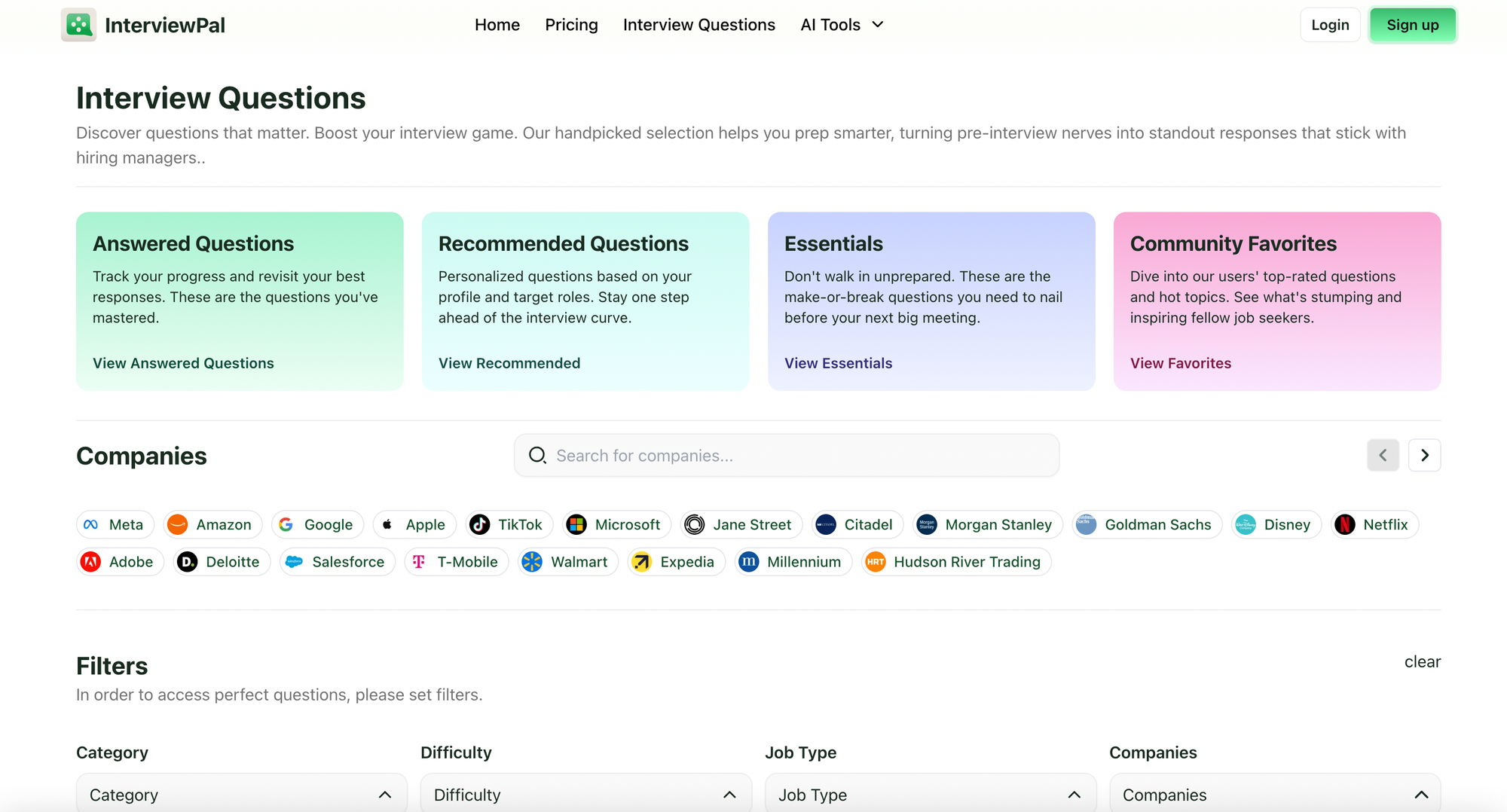Let’s get one thing straight: answering a question about adversity is only the beginning. The real test comes with the follow-up questions—the ones that dig into your decisions, your mindset, and your relationships with others. Think of it as peeling back layers. How did you really feel in that moment? How did you handle setbacks that could have discouraged a lesser person? If you’re ready to go beyond the surface and prepare for the questions that reveal who you are at your core, let’s dive in.
When you’re asked, “Tell me about a time you overcame adversity,” the interviewer is looking for much more than just a intriguing story. They want to see resilience, emotional intelligence, and clarity of thought. And when they follow up, they’re seeking the details that truly distinguish you from other candidates. These questions can range from probing deeper into your decision-making process to understanding the relationships you built (or broke) along the way.
Let’s walk through some common types of follow-up questions you might face, why they’re asked, and how to approach them with authenticity and depth.
And if you’re still working on your initial answer, I recommend checking out our article on “How to Answer the ‘Tell Me About a Time You Overcame Adversity’ Interview Question.” It’s a great place to get started before diving into the complexities of follow-up questions.
1. "Why Did You Approach the Situation That Way?"
This question is designed to understand the logic and thought process behind your actions. It’s a chance to show that you didn’t just react to adversity, but that you approached it with intention and foresight. The interviewer wants to see if you thought strategically or relied on impulse, and whether your approach shows maturity and adaptability.
How to Answer:
Explain your reasoning clearly. Emphasize any factors you considered, such as time constraints, available resources, or the impact on team members. This is also a great place to highlight aspects of your work ethic or problem-solving skills. For instance, did you value thoroughness over speed? Did you make the choice to involve others because collaboration was essential?
Example:
"I approached the situation by first assessing our available resources because I wanted to find a sustainable solution that wouldn’t drain the team. I knew that a quick fix might solve the problem temporarily, but I was focused on a long-term outcome. My work ethic revolves around quality and resilience, so I took the time to ensure our plan would stand up to similar challenges in the future."
2. "What Was the Outcome, and What Did You Learn?"
A classic follow-up that gets to the heart of the matter. Sharing what you learned is crucial because it shows that you’re capable of growth, even in difficult situations. Interviewers want to see that you’ve reflected on the experience and walked away with something meaningful. This isn’t just about what happened in the past; it’s a window into how you’re likely to handle challenges in the future.
How to Answer:
Be specific about the outcome. Mention any quantifiable results if possible, but don’t hesitate to discuss qualitative outcomes, like improved team relationships or personal growth. When discussing what you learned, focus on a key takeaway that’s relevant to the role. Did the experience teach you patience, adaptability, or better communication?
Example:
"The outcome was a success; we met our deadline and exceeded the client’s expectations. But what I took away from the experience was even more valuable—I learned the importance of listening to each team member’s input. In future projects, I made a conscious effort to create space for different perspectives, which has strengthened my collaborative skills."
3. "How Did This Experience Shape Your Approach to Working with Others?"
This question is an invitation to talk about your interpersonal skills and how adversity impacted your relationships with others. Did the experience make you more empathetic, more collaborative, or more understanding of other people’s strengths? Employers want to know that you’re not only resilient individually but that you also consider the well-being of those around you.
How to Answer:
Reflect on how the experience affected your approach to teamwork or communication. Mention specific ways in which your interactions with others changed. Did you become more willing to ask for help? Did you learn to delegate or to offer support when others faced challenges?
Example:
"Going through that challenge taught me the value of asking for help and being open to others’ ideas. Before this experience, I was hesitant to involve others, thinking I had to handle everything on my own. But now, I approach teamwork with a mindset of mutual support. I believe we’re stronger when we work together, and I’m more intentional about encouraging open communication within my team."
4. "What Would You Do Differently if You Faced a Similar Situation Again?"
Interviewers ask this question to gauge your self-awareness and growth. Adversity is a great teacher, and the ability to reflect on what you’d change indicates a commitment to improvement. Employers want to see that you’re not content with simply “getting through” challenges but are always looking to refine your approach.
How to Answer:
Focus on a specific aspect you’d adjust based on what you learned. Avoid saying that you wouldn’t change anything—this can come off as lacking self-awareness. Instead, think about what you could have done more efficiently, what you overlooked, or what you’d emphasize more strongly.
Example:
"If I faced a similar situation again, I’d be more proactive about communicating progress to stakeholders. Looking back, I realized that my focus was entirely on solving the problem, and I could have done a better job of keeping others informed. Now, I make it a point to provide regular updates, even when I’m deep in problem-solving mode."
5. "How Did This Experience Impact Your Work Ethic?"
This question digs deeper, aiming to understand how adversity has shaped your personal values and approach to work. Did the challenge reinforce your dedication to quality, or did it make you realize the importance of efficiency? Employers want to hire candidates whose work ethic is strong and resilient, especially in high-pressure situations.
How to Answer:
Reflect on the ways adversity may have reinforced or refined your work ethic. Be specific about the principles you adhere to as a result of the experience, whether it’s integrity, diligence, or adaptability. This is also a good place to mention any long-term changes in your behavior or mindset.
Example:
"That experience reinforced my commitment to maintaining quality, even under pressure. I believe that integrity in your work speaks volumes, and I made a commitment to always prioritize thoroughness, even when faced with tight deadlines. It’s a principle I carry with me into every project, ensuring that my work reflects my standards."
6. "How Did You Manage Stress During the Situation?"
Handling adversity often involves managing stress, and employers want to know how well you cope under pressure. This question is about gauging your self-regulation skills and whether you have healthy ways to manage difficult moments.
How to Answer:
Discuss specific techniques you used to stay calm and focused, whether it’s time management, mindfulness, or breaking tasks into smaller steps. Mention how your approach to managing stress helps you stay productive without becoming overwhelmed.
Example:
"During the challenge, I managed stress by breaking down the larger goal into smaller, manageable tasks. I also made time for short breaks to reset my focus, which helped me avoid burnout. This approach kept me calm and allowed me to stay clear-headed throughout the process."

How to prepare for more follow-up questions?
Answering the initial question about adversity is just the start. Follow-up questions allow you to show the interviewer not only how you handled the situation but also who you are as a professional and what values you bring to the table. By preparing thoughtful responses that touch on your work ethic, adaptability, and interpersonal skills, you give the interviewer a well-rounded picture of your capabilities and character.
If you’re looking to build your confidence and refine your answers for behavioral interview questions, our platform can help. With a comprehensive library of behavioral interview questions tailored to real-world interview scenarios, our tool allows you to practice with AI-powered feedback and mock interviews that simulate the real thing. Whether it’s preparing for follow-up questions on adversity or tackling other challenging topics, our platform offers a structured and supportive way to enhance your interview skills. Give it a try and walk into your next interview feeling fully prepared and poised.



